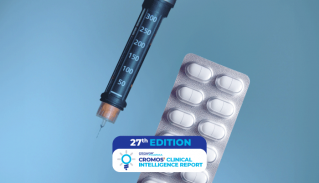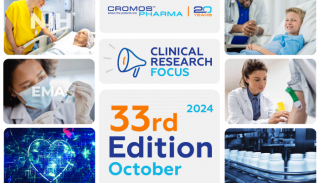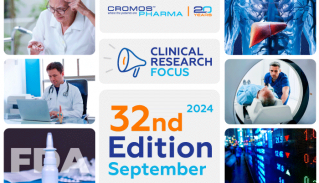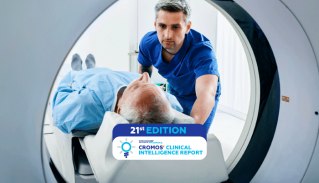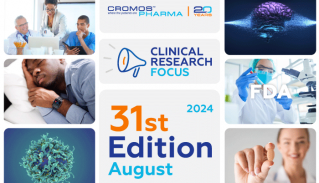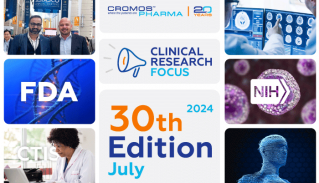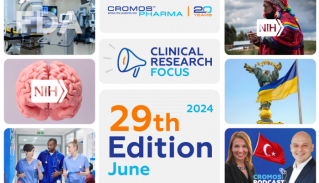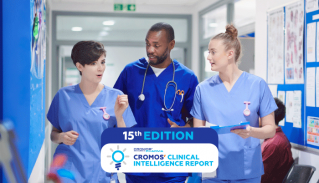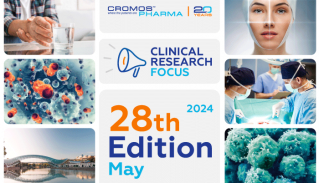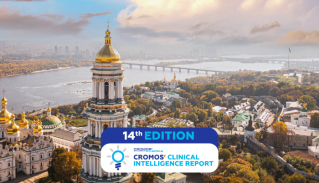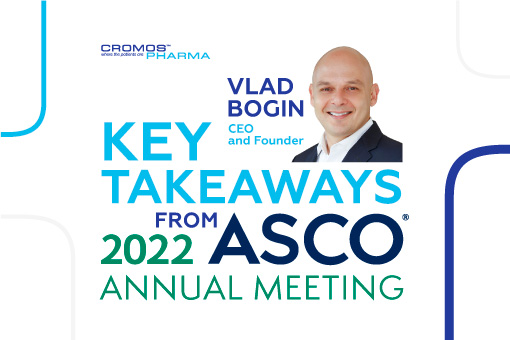
Key Takeaways from ASCO Annual Meeting 2022
Cromos Pharma’s CEO Vlad Bogin recently attended the ASCO Annual Meeting (Jun 3-7). Read his key takeaways from the event.
It was a great pleasure to participate in this year’s ASCO meeting, the first in-person event since the onset of the COVID-19 pandemic. While my primary interest is in getting to know the companies that are looking for a CRO partner, I am very intrigued by the new developments in cancer research.
Below is short list of trials presented at ASCO that have particularly piqued my interest. I hope you will find this information useful.
Radiotherapy May Be Unnecessary in Select Patients with Early Breast Cancer
The LUMINA trial prospectively evaluated the rates of recurrence in women who have undergone breast-conserving surgery for luminal A grade 1-2 T1N0 breast cancer and were treated with adjuvant endocrine therapy alone, without adjuvant radiation. The trial enrolled 501 women over the age of 55 with luminal A grade 1-2 T1N0 breast. Interestingly, neither PAM50 nor Oncotype were used for patient selection. Study findings revealed that the 5-year rate of local recurrence was rather low at 2.3%. It was comparable to the rates of contralateral breast cancer (1.9%). The results of this trial suggest that in carefully selected, low risk patients, omitting radiotherapy could be a safe treatment option. And it is possible that such patients won’t need additional stratification by PAM50 or Oncotype. More similar trials are underway. Based on its cumulative results we may soon see some changes to the treatment guidelines.
Circulating Tumor DNA (ctDNA) as an Emerging Biomarker with Strong Prognostic Potential
This year multiple presentations at ASCO have been around the use of ctDNA for its prognostic purposes. Here are a couple of more notable trials that were presented.
LIONESS is a single-center prospective cohort study in patients with stage I-IVB head and neck squamous cell carcinoma where postoperative ctDNA was used as a biomarker to evaluate tumor clearance and the risk of relapse. 46 patients were monitored with serial plasma ctDNA monitoring after surgery. 69% (11 of 16 patients) ctDNA-positive patients had clinical recurrence, compared to 0% of ctDNA-negative patients. Clinical recurrence was identified at a median of 122 days after ctDNA detection.
BTCRC LUN 16-081 is a phase II trial in patients with stage III non–small cell lung cancer who received consolidation treatment with check point inhibitors (CPI) after chemoradiation. Progression-free survival (PFS) was significantly lower in patients who had detectable ctDNA before, during, or after CPI. After 1 cycle of consolidation patients with increasing ctDNA levels had a 2-year PFS of 0%, compared to 73% in patients with decreasing or undetectable ctDNA levels. What was also notable, is that 91% of patients with undetectable ctDNA were still alive 2 years after treatment. These results are very intriguing and suggest that in the nearest future ctDNA may become one of the most important prognosticators to risk stratify cancer patients regarding the need and intensity of adjuvant treatment. We still need to see translational outcomes data, where patients with high or increasing ctDNA levels receive more aggressive or prolonged treatments.
Neoadjuvant Dostarlimab in Mismatch Repair–Deficient (dMMR) Rectal Cancer
This single-arm phase II study that is still ongoing has taken ASCO by storm. The study was designed to enroll 30 patients with clinical stage II and III dMMR rectal cancer scheduled to receive a 6-month treatment with Dostarlimab, a PD-1 inhibitor. 94% had node-positive disease and approximately half of the patients had Lynch Syndrome. All but one patient has node-positive disease, and about half have Lynch syndrome. All tumors were dMMR and BRAF V600E wild-type. The results of the first 14 consecutive patients were presented. All had complete clinical response to dostarlimab given as a single agent which is unprecedented. Between 5% and 10% of rectal cancers are dMMR. If these results hold up in the ongoing and future trials, this may result in a complete paradigm shift of how we treat this subgroup of rectal cancers.
When it comes to the important discoveries that were presented at ASCO 2022, the above is just a glimpse, the proverbial “tip of the iceberg”. As clinical research partners we celebrate both basic scientists and clinicians that are relentlessly inching closer to our common goal – conquering cancer once and for all.
About Cromos Pharma
Cromos Pharma is a US-based, international contract research organization delivering fully integrated clinical research solutions, in all trial phases, across a wide range of therapeutic indications. Our expert team, comprised of 95% MDs, has extensive expertise in study design, medical writing, regulatory affairs, site management, patient recruitment and data management.
Cromos Pharma has experience in delivering success in a wide range of trial types, from biosimilars and generics, to successfully managing trials of novel therapeutics in a wide range of clinical indications. Our team provides full-service solutions to international pharma and biotech companies in high-recruiting regions, assuring exceptional data quality. Cromos Pharma combines global expertise with in-depth experience and knowledge in the US, Central and Eastern Europe, Central Asia, Republic of Georgia, and Türkiye to offer exceptional patient recruitment. Our team has met or reduced enrollment timelines in 95% of conducted trials.
We provide accelerated study start-up timelines in our regions of operation. Regulatory inspections by FDA and EMA and site audits attest to the highest quality of our clinical data.
Established in 2004, Cromos Pharma has strong regional experience that is supported by a global network of offices. Its international HQ is located in Portland, Oregon, USA and its European HQ is in Dublin, Ireland.


